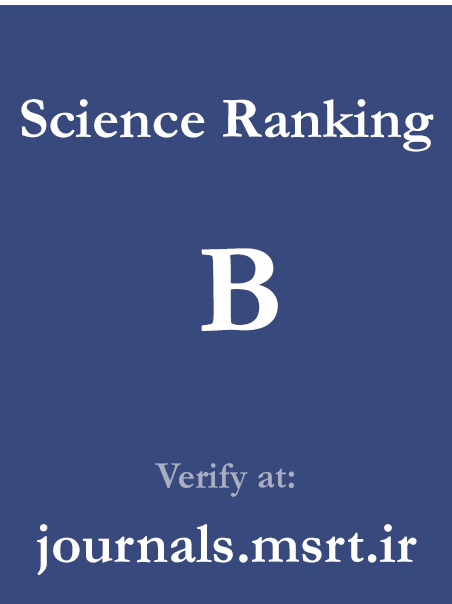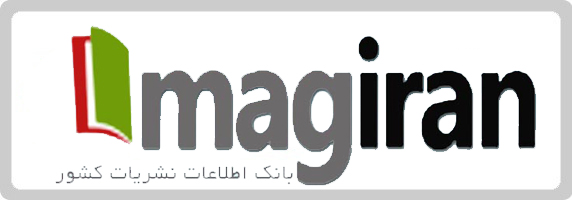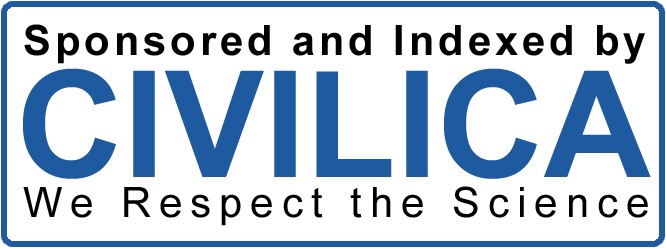Identification and Prioritization of Lean Human Resource Management Components: A Study in the Oil Industry of Iraq and Iran
Keywords:
Lean, Human Resources, Lean Human Resources, Systematic ReviewAbstract
The purpose of this study is to identify the components of lean human resources in the Ministry of Oil of Iraq and to provide a detailed review of the various dimensions and components of lean human resources that influence the improvement of human resource efficiency and effectiveness. This research is based on an interpretive philosophy, follows an inductive approach, and utilizes a qualitative methodology. In the qualitative phase, a systematic review approach and qualitative content analysis method were employed. The population under study for identifying lean human resource components is the Iraqi oil industry. The keywords used for the search included “lean personnel,” “lean employees,” “lean leadership,” “lean human resource principles,” “lean methods or techniques or tools,” as well as combined searches such as “human resources” and “lean” or “human resource management methods” and “manufacturing companies.” The strategy recommended by Tranfield et al. (2003) was adopted, which generally includes three major stages: planning the review, conducting the review, and reporting the review. The time frame for the reviewed studies spans from 1980 to 2024. Moreover, to conduct the systematic review, this study followed the three-stage review framework of Tranfield et al. (2003). The results indicate that emphasis on training and development, teamwork, competence and expertise, creative innovation, job concepts, cultural values, influential roles, structures and methods, communication and interactions, positive behavior and attitudes, human resources and empowerment, integrated management systems, monitoring and evaluation, and support and backing contribute to the improvement of organizational performance.
Downloads
References
1. Paposa KK, Thakur P, Antony J, McDermott O, Garza-Reyes JA. The Integration of Lean and Human Resource Management Practices As an Enabler for Lean Deployment –A Systematic Literature Review. The TQM Journal. 2023. doi: 10.1108/tqm-12-2022-0355.
2. Salgi Z, Vahdati H, Mousavi J, Nazari K. Designing a Lean Human Resources Excellence Model. Management Research in Iran. 2021;25(1):74-93.
3. Garcia-Buendia N, Moyano-Fuentes J, Maqueira-Marín JM. Lean supply chain management and performance relationships: what has b een done and what is left to do. CIRP Journal of Manufacturing Science and Technology. 2021;32:405-23. doi: 10.1016/j.cirpj.2021.01.016.
4. Dey PK, Malesios C, De D, Chowdhury S, Abdelaziz FB. The Impact of Lean Management Practices and Sustainably-Oriented Innovation on Sustainability Performance of Small and Medium-Sized Enterprises: Empirical Evidence from the UK. British Journal of Management. 2020;31(1):141-61.
5. Salvadorinho J, Ferreira C, Teixeira L. A technology-based framework to foster the lean human resource 4.0 and prevent the great resignation: The talent management lift. Technology in Society. 2024;77:102510. doi: 10.1016/j.techsoc.2024.102510.
6. Hundal GS, Thiyagarajan S, Alduraibi M, Laux CM, Furterer SL, Cudney EA, et al. The impact of Lean Six Sigma practices on supply chain resilience during COVID 19 disruption: a conceptual framework. Total Quality Management & Business Excellence. 2022;33(15-16):1913-31. doi: 10.1080/14783363.2021.2014313.
7. Selgi Z, Vahdati H, Mousavi SNa-D, Nazari Pouri AH. Designing a model for lean human resource excellence; a basis for measuring the degree of lean human resources in the public sector. Quarterly Journal of Management Research in Iran. 2021;25(1):84-93.
8. Naidoo L. Critical Success Factors and Practical Considerations for Lean Readiness and Implementation in Health-Care: A Literature Review. Journal of Contemporary Management. 2021;18(1):407-32. doi: 10.35683/jcm21031.111.
9. Aytekin A, Okoth BO, Korucuk S, Mishra AR, Memiş S, Karamaşa Ç, et al. Critical success factors of lean six sigma to select the most ideal critical business process using q-ROF CRITIC-ARAS technique: Case study of food business. Expert Systems with Applications. 2023;224:120057.
10. Alieva J, Powell D. The Significance of Employee Behaviours and Soft Management Practices to Avoid Digital Waste During a Digital Transformation. International Journal of Lean Six Sigma. 2022;14(1):1-32. doi: 10.1108/ijlss-07-2021-0127.
11. Latif MA, Vang J, Sultana R. Individuals' Psychosocial Voice barriers in Lean Problem-Solving Teams. International Journal of Productivity and Performance Management. 2021;72(5):1321-37. doi: 10.1108/ijppm-11-2020-0618.
12. Sepahvand SA, Momeni M. Analyzing the Relationship Between Lean Leadership Capabilities and Professionalization of Human Resources in Sports Organizations Using Interpretive Ranking Process. Sports Management Journal. 2021;13(3):871-83.
13. Fang Y, Daniel EI, Li S. Conceptual framework for lean construction ambidexterity in project-based organizations. Construction Management and Economics. 2021;39(10):824-38. doi: 10.1080/01446193.2021.1978516.
14. Deranek K, Kramer SL, Siegel SC. Technology-Dependent Pedagogical Process Redesign: Leveraging Lean Methods. International Journal of Quality & Reliability Management. 2021;38(8):1816-32. doi: 10.1108/ijqrm-04-2020-0107.
15. Murnizu M. The Application of Lean Management Method in Optimizing Administrative Efficiency in Schools. Jurnal Konseling Pendidikan Islam. 2024;5(2):230-8. doi: 10.32806/jkpi.v5i2.158.
16. Noto G, Cosenz F. Introducing a Strategic Perspective in Lean Thinking Applications Through System Dynamics Modelling: The Dynamic Value Stream Map. Business Process Management Journal. 2020. doi: 10.1108/bpmj-03-2020-0104.
17. Wang H, Liu Y. Influencing Factors of Six Sigma Management in the Construction of Students Mental Health Service System in the Post-Covid-19 Era. International Journal of Lean Six Sigma. 2023;15(3):691-718. doi: 10.1108/ijlss-02-2023-0034.
18. Hari Najafabadi M, editor Supply Chain Management with Lean Production in Manufacturing Industries. 3rd International Conference on Management, Tourism, and Technology; 2021.
19. Αντωνιάδου Μ. Integrating Lean Management and Circular Economy for Sustainable Dentistry. 2024. doi: 10.20944/preprints202410.0248.v1.
20. Muñoz-Villamizar A, Santos J, Grau P, Viles E. Trends and gaps for integrating lean and green management in the agri-food sector. British Food Journal. 2019. doi: 10.1108/BFJ-06-2018-0359.
21. Rasheed K. Integrating Sustainability Management and Lean Practices for Enhanced Supply Chain Performance: Exploring the Role of Process Optimization in SMEs. 2023. doi: 10.3390/asec2023-16370.
22. Saenagri A. Implementation of Total Productive Maintenance and Lean Manufacturing in the Pharmaceutical Industry: An Empirical Study. Journal of Business and Management Studies. 2023;5(3):114-24. doi: 10.32996/jbms.2023.5.3.10.
23. Tretiak VР. Implementing Lean Management Principles to Optimize Healthcare Facility Operations. Economy and Society. 2024(62). doi: 10.32782/2524-0072/2024-62-84.
24. Ebadi A, Afzali M, Lotfi Z, editors. Providing a Solution to Overcome Existing Barriers in Lean Production Using a Fuzzy Multi-Criteria Decision-Making Approach. First International Conference on the Leap in Management, Economics, and Accounting Sciences; 2021; Sari.
25. Amani N, Taghizadeh H, Iranzadeh S. Discriminant Analysis of Supply Chain Stability Clusters Based on Lean Tools. Journal of Executive Management. 2020;12(23):67-94.
Downloads
Published
Submitted
Revised
Accepted
Issue
Section
License
Copyright (c) 2025 Monther Neameh Mahdi Al-Kabi (Author); Mohammad Mahdi Farahi; Azar Kafashpour, Ghasem Eslami (Author)

This work is licensed under a Creative Commons Attribution-NonCommercial 4.0 International License.



